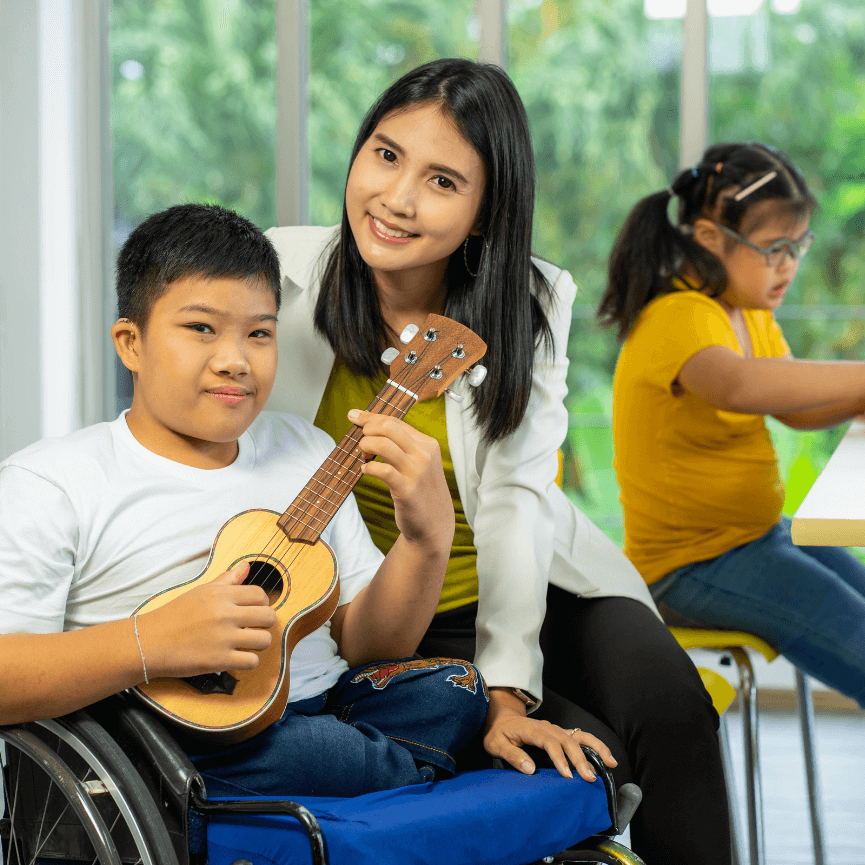
- Oct 26, 2024
- 93 Views
- 0 Comments
Understanding 9 Essential Services For Child With Autism
The Key Services Every Child With Autism Deserves for Lifelong Growth
Supporting child with Autism Spectrum Disorder (ASD) involves a comprehensive network of essential services designed to address individual needs. Early diagnosis and personalized interventions play a crucial role in helping children develop their full potential. With the right support, children with autism can acquire important life skills, strengthen social connections, and overcome many challenges associated with the spectrum.
What Is Autism Spectrum Disorder (ASD)?
Autism Spectrum Disorder, or ASD, is a neurodevelopmental condition that affects social interaction, communication, and behavior. The symptoms can vary widely, but common signs include difficulty with eye contact, repetitive behaviors, and challenges with expressing emotions. Understanding these signs and how they manifest in children is the first step in finding the right support services.
The Importance of Early Intervention
Early intervention is a powerful tool for helping children with autism reach their potential. Studies show that early support can lead to better language skills, social interactions, and cognitive development. Intervention is most effective during the early stages of a child’s development when the brain is most adaptable to change.
Types of Essential Services for Children with Autism
To meet the needs of children on the autism spectrum, a range of services and therapies are available. Each service is tailored to address specific aspects of a child’s development, from communication skills to motor abilities and social engagement.
1. Diagnostic Assessments and Evaluations
Accurate assessments are the foundation of effective autism services. Diagnostic evaluations are usually conducted by a multidisciplinary team, including psychologists, speech therapists, and occupational therapists, to identify a child’s unique strengths and areas of need.
2. Behavioral Therapy Services
Behavioral therapy focuses on understanding and managing behaviors in children with autism. The most common approach is Applied Behavior Analysis (ABA), which encourages positive behaviors and helps reduce challenging ones. Social skills training and functional behavior assessments are also part of behavioral therapy, helping children adapt to everyday social environments.
3. Speech and Language Therapy
Speech and language therapy is crucial for children who have difficulties with verbal and non-verbal communication. Techniques may include using visuals to enhance understanding, practicing speech sounds, and using alternative communication methods, such as picture boards or sign language, to help children express themselves more effectively.
4. Occupational Therapy (OT)
Occupational therapy (OT) helps children build the skills needed for daily activities, such as dressing, eating, and interacting with their environment. OT often involves sensory integration techniques to help children manage sensory sensitivities, improving their ability to focus and engage in various tasks.
5. Physical Therapy (PT)
Physical therapy assists children with autism in developing motor skills and coordination. Many children on the spectrum benefit from exercises that improve strength, balance, and flexibility, enabling them to participate more fully in physical activities and improving their independence.
6. Social Skills Training
Social skills training helps children with autism learn how to engage and interact with peers. This training may include role-playing, group activities, and supervised play, allowing children to practice essential social behaviors in a safe, supportive setting.
7. Educational Support Services
In schools, children with autism often benefit from Individualized Education Programs (IEPs), which are tailored to their learning needs. Specialized classroom settings and resources ensure that children with autism can succeed academically, often with the assistance of specially trained educators and aides.
8. Family and Caregiver Training
Family and caregiver training empowers those who are closest to children with autism to support their development. Training programs teach parents and caregivers effective communication methods, behavior management strategies, and other tools to help their child succeed.
9. Supportive Community Programs
Beyond the family and school, supportive community programs provide social and recreational opportunities for children with autism. From social groups to summer camps, these programs create inclusive spaces where children can build friendships and enjoy activities tailored to their needs.
The Role of Technology in Autism Support
Assistive technology has become an invaluable asset in supporting children with autism. Apps, educational games, and specialized devices allow children to develop skills at their own pace, while also helping them communicate and learn. Tools like communication devices and sensory-focused apps offer new avenues for expression and engagement.
Navigating the world of autism support services can be challenging, but each service provides an essential building block for a child’s development. From behavioral therapies to family training, these services foster growth, independence, and quality of life for children on the spectrum. With a network of supportive services, children with autism and their families can thrive in a world that values inclusion and acceptance.



Comments - 0 comments till now